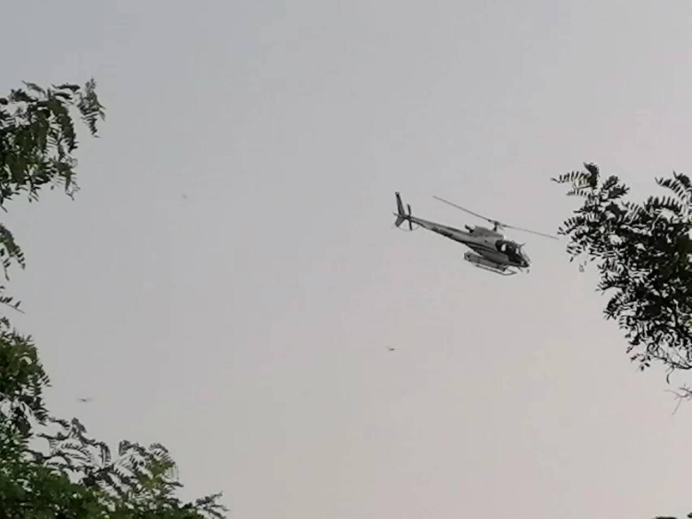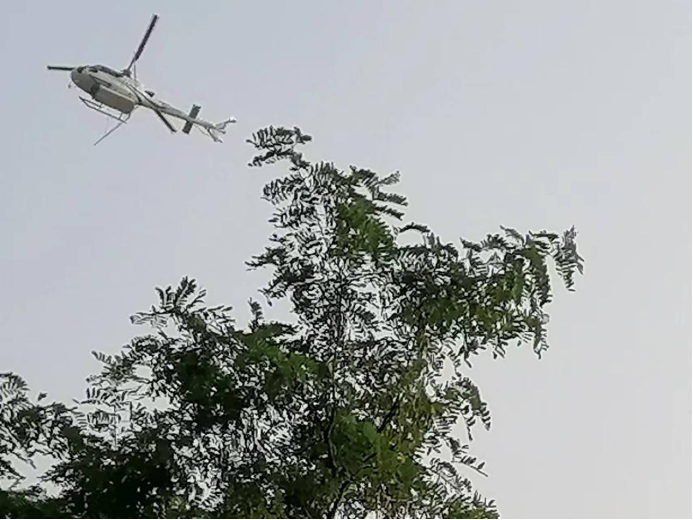"Flight-prevention" refers to the practice of spraying pesticides through airplanes or drones to control plant diseases and pests. Recently, local volunteers reported to the CBCGDF Biological Control Working Group of the China Biodiversity Conservation and Green Development Foundation (CGCGDF) that Dalian City is scheduled to conduct the first flight-prevention in 2023 in forests of the main urban area from July 9 to 10. According to volunteers, this practice has caused significant damage to local plants. In this regard, in combination with some problems caused by flight-prevention in various places over the years, Dr. Zhou Jinfeng, Secretary General of CBCGDF, in consideration of the public health problems in densely populated areas and biodiversity, suggested that relevant departments of urban landscape management should consider stopping flight-prevention.

Dr. Zhou suggested that urban management departments should consider stopping flight-prevention in urban areas and densely populated areas, and instead use other methods. The most important reason is that aircraft pest prevention and control work will lead to a sharp decline in biodiversity in urban areas. As is well known, biodiversity conservation is an important aspect of urban ecological civilization construction. Due to its widespread and large-scale drug release, flight-prevention can first directly affect insects; and with the sharp decrease in the number of insects, the number of birds and other creatures will also undergo a sharp decrease, especially for migratory birds, which can lead them to suffer insufficient food sources and hunger.

Usually, biodiversity assessment and health assessment will be not considered before flight-defense. In addition to the sharp decrease in biodiversity, the chemical drugs dropped by the aircraft will also have a generally negative impact on the health of humans and other creatures. For example, as beneficial insects, the number of pollinating insects has decreased on a large scale. Now is no longer the era of pursuing output and the aesthetics of industrial civilization style. Nowadays, many cities are concerned about the restoration of biodiversity. If indiscriminate and widespread use of flight-defense drugs is used, birds and insects that feed on plants, as well as birds that feed on insects, will be poisoned and die. This is not a guess, but a fact with observational evidence. So, in the air, on grass, trees, roofs, roads, and in rivers, these leftover drugs and their accumulated side effects will gradually become apparent, affecting the health and life of the people, and bringing extremely negative impacts to the development of cities.

A city should also be cautious if it wants to adopt other methods other than flight-defense. In order to protect the biodiversity of our neighbors and achieve the health and beauty of the city, we should advocate for "letting weeds grow" and limit the use of pesticides to create a natural ecology. I hope relevant departments can pay attention to it and effectively reduce the use of pesticides, especially in urban areas, while leaving more space for nature. Although it is necessary to block and prevent dangerous large-scale pests and diseases, we should grasp the scale well.
(This article is organized based on Dr. Zhou Jinfeng's oral statement and has not been verified by him. The text is for reference only.)
Editor: Richard
Checked by Maggie
Contact: v10@cbcgdf.org; +8617319454776

Contribution
Do you know? CBCGDF is a non-profit organization. We rely on crowd-funding and donations. You have the opportunity to help us to advance biodiversity conservation. Donate TODAY to power up the movement to make it a better world for all life.
https://www.paypal.me/CBCGDFChina
http://www.cbcgdf.org/English/ConfirmDonaTion/0.html
